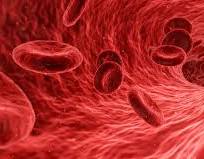Immune Thrombocytopenia
Immune Thrombocytopenia (ITP)
In theory:
Immune thrombocytopenia (ITP) is a rare blood disorder, with this disease, you have a lower amount of platelets than normal in your blood, which affects how your blood clots. When your blood can’t clot, you may bruise easily, bleed more than normal when you’re hurt or start bleeding for no reason. Having fewer platelets can cause easy bruising, bleeding gums, and internal bleeding. When it is a chronic disease, it means that treatment can alleviate symptoms but cannot cure or even lead to death. ITP that lasts more than 12 months is called chronic ITP. This disorder can happen at any age, symptoms can last from 6 months to several years, Or they may last for your whole life.
Immune thrombocytopenia usually happens when the immune system makes a mistake, it attacks and destroys the cells that help blood clot, also known as platelets. In people with ITP, the body produces antibodies that attack and destroy the platelets. In adults, an infection with HIV, hepatitis or the bacteria that causes stomach ulcers, known as H. pylori, can cause ITP.
Medications for treating thrombocytopenia (ITP): taking steroids; Inject immunoglobulin; eating Nplate,Promacta,Doptelet,etc; taking Rituxan, Ruxience, Truxima and Tavalisse. Surgical treatment for thrombocytopenia (ITP): If medication does not improve ITP, splenectomy may be performed.
In fact
What are the effects of these medications taken by patients with thrombocytopenia (ITP)? Does cutting the spleen have any effect? The purpose of treatment is to cure, not to take lifelong medication, or to continue taking lifelong medication after splenectomy if it has no effect. The patient needs to have their spleen removed, which is an injury. So cannot be cured, are all theoretical theories wrong?
A case of true thrombocytopenia (ITP) cured: a middle-aged person L who has always been healthy, has not suffered from any diseases, and does not have any family inherited diseases. In mid-2007, L suddenly fell ill in the United States and was diagnosed with thrombocytopenia ITP, at this time, the platelet count for blood test is 2 units. Since then, she has been receiving treatment in the United States. Hematologist D prescribed steroids to the patient L, but the effect was not significant, and it later became chronic ITP. Doctor D told her that it was a problem with her own immune system and could not be cured.
In late 2008, Doctor D believed that taking hormones was ineffective and
needed to have the spleen cut, either cut or die; Patient L choosing not to
cut is equivalent to choosing death. Why choose not to cut the spleen? At the
beginning of getting sick, there must be a reason for getting sick, but L is

very skeptical and do not believe what Doctor D said about my immune system(this is an intangible thing, it can be said that it exists, and it cannot
be said that it does not exist, no matter how you want to say it); If the spleen
is cut, the disease remains the same as before, and a healthy spleen is gone.
Because there was no splenectomy, I still went to see Doctor D. When the
condition is severe (the platelet count on the test report is 10 units or less),
medication is needed, and Doctor D still prescribed steroids to the patient L.
In March 2010, L took his last time of hormones (usually the amount of
hormones per dose is about 7 days, and patient L has taken a total of 7 times).
From mid-2010 to mid-2016, I still went to see Doctor, mainly for blood
tests to check the platelet count. Blood tests started once a month, then
every six months, and finally a year. In mid-2016, patient L’s ITP was cured,
and after ten years of ITP, L was finally cured. From 2016 to 2024, patient L
underwent blood tests, and all platelets were above 200 units, such as
219/227/234 units. It has been almost ten years since ITP was cured.

In theory, there is no such thing as saying this, but hematologists say that
ITP cannot be cured, but it can heal on its own (there may be such a lucky
patient, L knows that ITP patients keep dying), which is a manifestation
of the doctor’s incompetence. Patient L was not so lucky. L has ITP and
almost simultaneously has hyperthyroidism: with ITP, the patient feels very
tired and lacks strength, and with hyperthyroidism, the patient experiences
palpitations. Patient L doesn’t believe in this evil and needs to understand why. L treats himself as a test subject, constantly experimenting; hard work pays off, ITP has been cured. In the first few years of research, L was very difficult, but the sult is that L has a healthy body again, which is very worthwhile. The most important thing is to know how to cure thrombocytopenia ITP. Overall, thrombocytopenia ITP is not related to immunity and has no relationship with the spleen. We know there are many patients with thrombocytopenia ITPall over the world, how are you doing now? Contact us to talk about it.